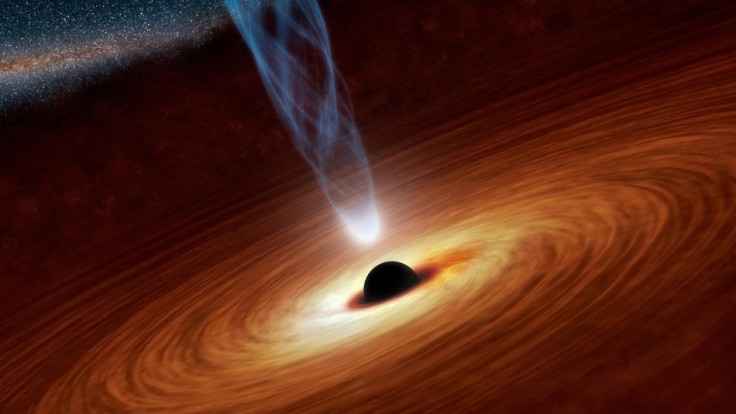Big Bang Theory Busted: Universe Created 'When Star Fell into Black Hole in 4D Bulk Universe'

The Big Bang theory has been challenged by a group of scientists who say the universe was formed when a four-dimensional star collapsed into a black hole.
Common understanding says the universe exploded from an infinitely dense point or singularity, but no one knows what triggered it. The theory proposes that the universe expanded faster than the speed of light.
The Big Bang theory also does not explain why temperatures across the universe are almost uniform - there would not be enough time since the Big Bang for the universe to reach a consistent temperature.
Niayesh Afshordi, an astrophysicist at the Perimeter Institute for Theoretical Physics in Canada, said: "For all physicists know, dragons could have come flying out of the singularity."
Reported in the journal Nature, the scientists propose a theory first put forward in 2000 that says our 3D universe is a membrane that floats through a 4D "bulk universe".
If a bulk universe has its own 4D stars, some could collapse, forming 4D black holes. Black holes are bounded by a spherical surface called an event horizon. In a bulk universe, the event horizon would be a 3D object.
Infinity
In the event of the death of a 4D star, the ejected material would form a 3D membrane, the team found.
"Astronomers measured that expansion and extrapolated back that the universe must have begun with a Big Bang - but that is just a mirage," says Afshordi.
They say their model helps explain the universe's uniformity, as the bulk universe could have existed for an infinite length of time before our universe was created.
However, their theory has some issues. Data released by the European Space Agency's Planck space observatory recently showed temperature fluctuations in the cosmic microwave background - radiation carrying imprints of the early moments of the universe.
Afshordi says he plans to adjust their model to account for these findings.
© Copyright IBTimes 2025. All rights reserved.






















